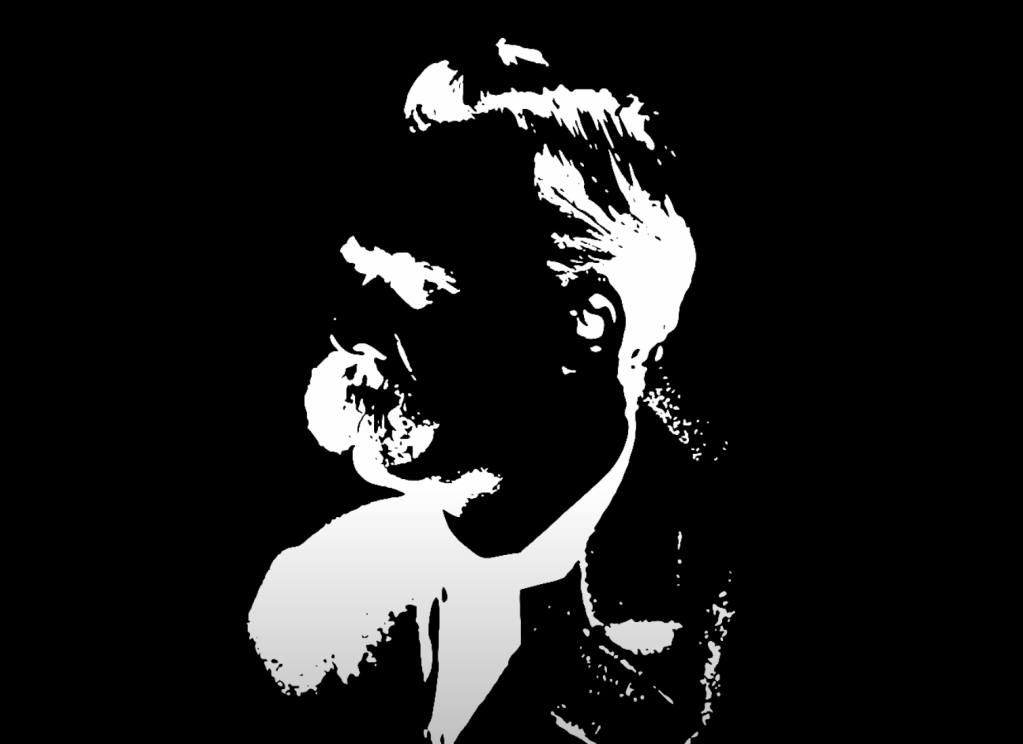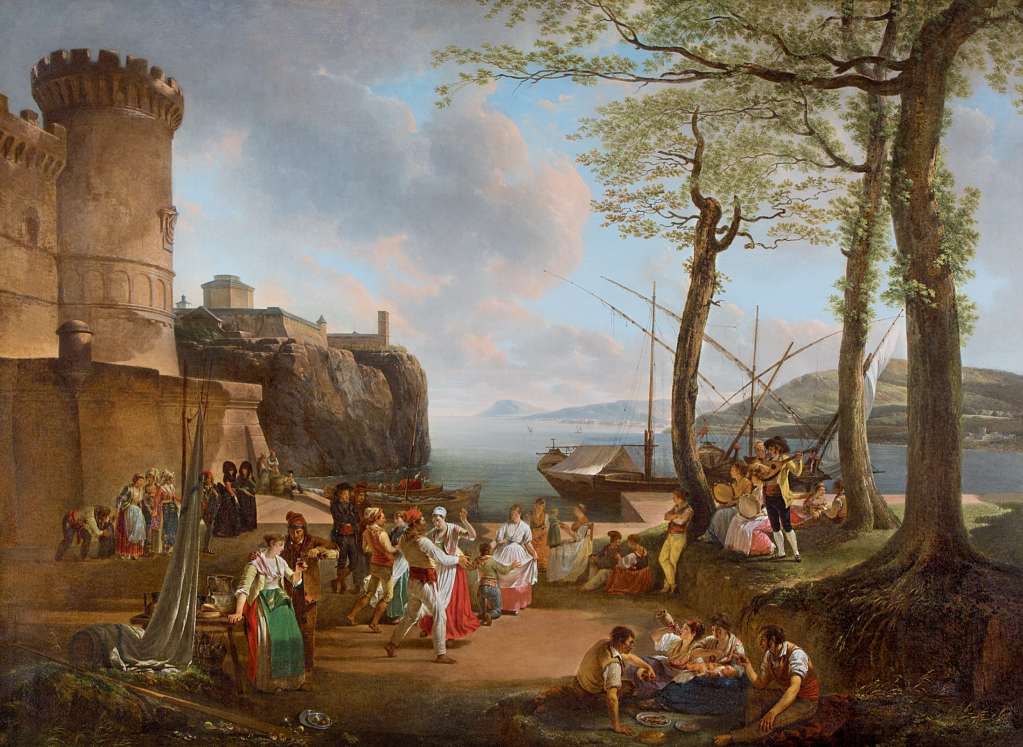I take it as a sort of blessing in disguise that I came to the left from a conservative family background. When I first entered the left in my early 20s, I thought of politics not merely as a liberal but as an ultra-liberal. I took the same quasi-religious sense of politics that informed the conservative views I was exposed to as a child and applied them to my newfound leftist commitments. Thanks to Facebook memories that pop-up day-to-day I am reminded of these days. While much of my takes and my activism now make me feel cringe, I cherish this period in my life while I recognize its limitations.
As a liberal, my politics were libidinally non-complicated. To be ‘political’ was like tapping into a reservoir of the most righteous social positions of the day and spreading their message outward. From within this space, I found my calling as a champion of Muslims in a post-9/11 context where Islamophobia was a real threat. I remain committed to work in this area and my analysis of Islamophobia has only grown more nuanced and deeper as I adopted socialist orientations in my politics. I look back now and realize that much of my political activism was a way for me to address unresolved Oedipal hang-ups with my conservative family. If I could challenge my conservative family and their bigotry, I would not only win them over and be a hero to the left, but I would also resolve deeper and more complicated traumas that exceeded these political issues. And in some cases, there was real bigotry expressed by my family. For example, I had a serious break with my father for several years due to his hatred of Islam.
As a liberal, it was libidinally quite easy to be a leftist because the idea of waging a self-critique of the left wasn’t necessary. If more and more institutions shared the views of the left, from the White House to private corporations, to private colleges and universities this was a sign that people were waking up to injustice. What mattered was that the gospel was being spread, that views were being altered into the shared reservoir of righteous social action. There was no ideological problem with the left so long as we could show large scale support for adoption of our causes by powerful institutions.
But the world changed after the global meltdown of capitalism in 2008. The class struggle came knocking. It was in this context that I first seriously encountered Marx and that completely changed my conception of politics. This is not to say that I relinquished my view of the necessity to protect minorities and to fight for social justice. It meant that I adopted a critical view on liberalism and institutional power as such. Of course, I maintained my former commitments, but I came to see the way that my values were abused by powerful institutions and by the class interests of institutions that act in accommodating ways to radical social justice demands. I adopted a different understanding about how the idea of the left is forged through power dynamics and class power. I realized that liberalism could absorb the demands of radical social causes while persistent status quo domination goes on unchecked.
The Fractured Liberal Superego
As I look out on the splits and divisions on the left today, I see a left which is not driven by the same righteous liberal superego that I used to champion. If you want to be seriously engaged on the left today the truth is that you will be thrown into the whirlwind of the crisis of the system, because the left struggles to discover itself amidst the ongoing crisis of the capitalist system. The ideas that I used to zealously enforce as an ultra-liberal are not ruling class ideas, but the ruling class has seized on them in such a way that they have muted the radicalism of these very causes. As I have recently written, the main culprit for this crisis is due to the conditions of finance capitalism and its paternalistic hold over younger generations, which acutely affects the working class in qualitatively different ways than the middle class.
In this context, the left is faced with material class power realities that it must face. It must face the fact that co-optation by powerful institutions of leftist ideas has created a culture of punitive and cruel exclusion. The origins of this punitive turn on the left maps onto the same punitive turn that neoliberal capitalism has taken to the working class overall. This punitive and cruel turn has been internalized by the left in complex ways. One contributing factor, but certainly not the only one, is the left’s embrace of no-platforming, a strategy that emerged in Trotskyist efforts to combat fascism in the 1960s and 70s in Britain. In Evan Smith’s book on this topic, he shows how no-platforming grew on college campuses to target a far wider range of targets beyond just fascists, from sexists and racists.
While in my view there are merits to no-platforming reactionary fascists, we must acknowledge that this tactic has contributed to a heightening of irrationality and intensified punitive attitudes on the left. Let me take one example from a friend of mine who taught a graduate course at a private elite college. I will keep this anonymous. Their class was boycotted or ‘no-platformed’ by the grad students for the absolutely insane reason that Sigmund Freud’s work appeared in the syllabus. Freud was deemed worthy of no-platforming in these students’ eyes because he is a white patriarchal thinker. When asked to elucidate on how Freud’s ideas are specifically problematic, the students refused to answer or engage in a debate, and they cited the fact that one student was black in the class and to even entertain this debate would be a threat to her existence. The class had to be cancelled. Let me add also that the professor was non-white. The students were imbibing the left’s new turn to post-critique, but more on that later.
I share this example to show that the idea of the left and no-platforming does indeed have limits that have to be acknowledged. On what basis would the black student’s existence be threatened by reading Freud? This is an example of an irrational groupthink phenomena that these students will likely grow to regret. We are facing a serious disconnect between the liberal demand for a purified defense for the most vulnerable while at the same time the left does not care to ask who and which groups constitute the most vulnerable. The presupposition of the left today is that all white people are oppressive and even the concepts of a Jewish scientist such as Freud, a thinker whose ideas have informed anti-colonial thinkers such as Fanon, must still be no platformed. The ideas of the left have run afoul in a paternalist bourgeois institutional space that has done nothing for the deeper objectives the left holds dear. It also must be said that these students were all from middle class and upper middle-class backgrounds.
While I support no-platforming for people who express fascist views, we must acknowledge that we have reached a point where self-reflection is called for on this tactic. The superego formation of the left has grown pernicious and cruel, and this has led to a situation where many now latch onto bourgeois institutions as havens where rules and protections can be enforced, and the result is a culture of constant persecution permeates the left. What needs to be challenged in this situation is the way that bourgeois institutions fail to absorb leftist demands, however confused those demands may be, and how this contributes to an othering process that turns many people away from the left.
One way to address this issue is that the left must embrace and forge alternative culture-building outside of the paternalist hold of bourgeois institutions. Another way to address this is to acknowledge that the punitive and rules-based codes that make up what it means to belong on the left today are exclusive, especially to those not born into classes in which access to private universities is available. Bourgeois institutions are fine to accommodate each little unit of human capital into its system and to even side with the students however irrational their demands may be. It is this disconnect between the legalistic embrace of ultra-liberal radicalism and the actual ideas of the left that are produced as a result that are leading people to turn on the idea of the left.
We are dealing with a situation where bourgeois institutions are welcoming a dejected sense of radicalism for which they knowingly can provide no adequate solution. The left must subtract from these institutions if it wishes to revive its commitment to its own principles. If this is not done, I predict that more and more post-left environments will sprout up and more shallow culture war posturing will replace material analysis of concrete dynamics that we face.
The Death of the Underground
This draws me to my main topic. Underground Theory is a new book created by Theory Underground, a YouTube channel that offers lectures, courses and publishing. It is designed to offer opportunities for working class people to engage with theory. I shared a draft book cover of this book, and it ignited a very wild reaction from twitter. But out of this situation much was clarified, and it raised several questions that I think worth reflecting upon. The first and foremost is that people raised the question as to what qualifies this book as ‘underground’ given that Žižek, McLuhan, Norman Finkelstein, and others critical of ‘woke’ liberalism appear as headliners. I find much of these writers, except for McLuhan who is now dead and never exposed to the asinine notion of work culture, to be a bit boring regarding their critique of said woke culture.
The truth is that the use of ‘underground’ in this instance, it must be said, refers to the fact that most of the lesser known authors face material exclusion from academia and are marginal working-class autodidacts. Most of the contributors are not necessarily post-left, they are excluded from the primary culture of the left due to material circumstances. This does not qualify the project as technically underground but nor does anyone really have a legitimate claim to the status in my view.
The other source of critique of this book came from the fact that Nina Power is included in the list of authors. Power is known as a transphobic author and Xenogothic has written up an argument as to why my inclusion in this book, even as a critic of Power and especially of Compact Magazine, is still problematic.
Let me once again repeat the story of how I came to contribute to the Underground Theory book. I was invited by the host David to talk about the idea of leisure time and socialism, to discuss some ideas in my forthcoming book on Nietzsche and how they relate to his concept of “time energy.” The conversation began with David taking issue with the fact that I engage in dialogue with family abolitionists as he is highly critical of family abolition. So I started by defending the idea that the left must engage in debate and dialogue with other leftists because if we fail to do that then we only further silo ourselves off from one another.
To my surprise and complexly unexpected to me, David brought Nina Power on to debate me. You can watch that debate here. But suffice it to say that I think Nina’s views on the trans community to be terrible and I reject them. I specifically take issue with anyone questioning the extent to which the community faces threats and any attempt to downplay that is highly suspect! At the same time, I realize that Nina is not seen as a fascist and her book on What Do Men Want was accepted by Penguin Random House after a thorough review of her actions. This is not to defend Power, but it is to say that to simply no-platform her may not deliver the results that are sought given that she is now a mainstream voice. As such, why not engage her at this level, especially given that there seems to be an inverse relation between the insistence on no-platforming and the growth of her exposure on rightwing channels?
The Vicissitudes of the post-Critique Left
There is a bigger issue that concerns me in this situation. Whether you think I should have avoided being published as a critic in this series or not, I think that the move to post-critique and staunch no-platforming is problematic for the left. Much of this post-critique posture is driven by the notion of the reparative turn in queer theory and the idea here is that waging critiques of forms of power, the system etc. are not what delivers results for the most vulnerable. This is argued for example in Eve Sedgwick’s work, and it leads her to question whether Marx, Nietzsche and Freud are even useful anymore, the three thinkers being the great paranoid critics of modernity, each eager to point to critiques of the system in different ways.
I take the turn to a post-critique left to be a damaging proposition if one wants to truly engage reactionary tendencies today. This is why I wanted to take on the deleterious work of Compact Magazine, the conservative and edgy pro traditionalist publication. Xenogothic instead thinks that I should face my guilt for even being included in this book as a critic. I should embrace my guilt for doing so head on, i.e., I should embrace the superegoic logic of the left as it is instead of actively critique the left while remaining true to my principles. Xenogothic says that he “disagree(s) that the left is in any sort of ideological crisis.” And he continues,
“the compromises Tutt himself warns us against are made from the start! That is the issue. Not guilt by association, as if this were some tangential and unfounded critique, but the real guilt of association. Association of any kind with these people serves only to legitimise a space for debate and undermine a contemporary militancy, which is itself a form of violence, regardless of whether someone engages with it critically or not.”
The idea pointed to here is that critique matters for nothing when you are dealing with transphobes like Power. Now again, I have refused to publish an interview with Power on a separate occasion because trans Marxist friends of mine have asked me not to because of the same views that Xeno articulates here. So, I am happy that he does not see my intention as malicious, but at the same time, I do not think that the enforcement of guilt here goes to untangle a sense of moralism at work in Xeno’s analysis of this situation.
Power is problematic and she is also a mainstream figure who should be challenged. As I mention above, no-platforming has now become a means for auto-exclusion of people based on race in ways that totally compromise any coherent conception of leftist principles. A left that seeks to heighten the already existing punitive and cruel exclusionary tendencies that so many of us already face day-to-day is not a positive solution for an engaged and militant left. This moralism only narrows the basis by which we understand who is vulnerable and who is not. And nor does such an approach assist us in combating reactionary forces. It rather personalizes and moralizes.
I take Nietzsche here to be a strange godfather of this very same moralizing tendency in his notion of ressentiment, an argument I develop in my forthcoming book. Of course, the left is heterogenous and we should be for debate – some of the authors in the Underground Theory book may have problematic views. But those views need to be debated and engaged with especially because so many of the readers of this book will be mostly working-class young people who have themselves in many cases given up on the idea of the left today. I take it as an essential mission to retain a commitment to the left, as a critic, without guilt. How else can one stand for what is true.



Leave a comment